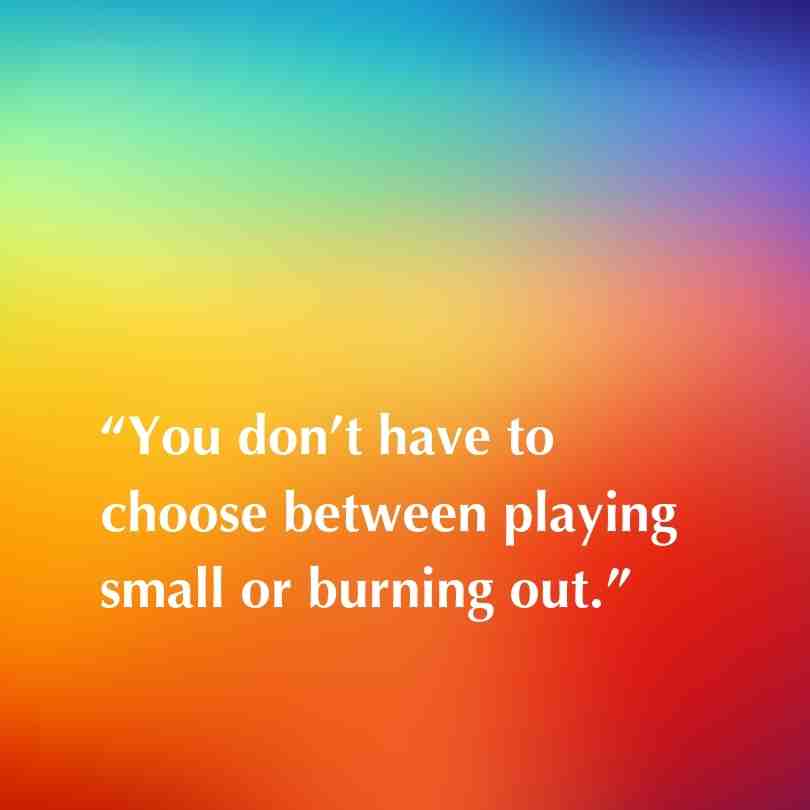Imposture syndrome, the creative process, and a challenge to create your definition of productivity
“Whenever I feel imposter syndrome, my knee-jerk impulse is to work with a frenetic intensity,” I told Lydia. “Even though my book is packed with years of research, there’s a doubting voice in the back-right quadrant of my brain, taunting me with the possibility of being called out for my book not being enough.”
A newly minted fiction author, her reply was unfazed: “A lot of authors say that imposter syndrome never goes away, even when sitting down to write their third or fourth book. There’s always this voice that they’re not doing enough.”
Lydia opened the door to the shadowy boogeyman in my head: Am I doing enough to be a credible writer on productivity?
The stats are rock solid: grinding at work halts long-haul productivity. Overworking (more than 55 hours a week) leaves measurable stress imprints on your cardiovascular system.
I’d hoped that once my mentor called me “the most productive person I know,” I received cosmic permission to write about productivity. Or that when I finished researching The Joyful Flow Formula, doubt would dissipate.
Spoiler alert: Even after years of researching, I still face new projects and grind my teeth wondering…
Can I really achieve my next goal joyfully, or will my naivete compromise my results?
You need to double down, get faster with replying to emails. Stay up just a little bit later. My brain whispers this tantalizing solution like it’s a Disney Express pass.
“Trust the creative process. Be confident that you’ve done your best to date, with what you have,” Leah continued, yanking me out of doomsday scenario planning.
When we hung up, I lit a candle to remind myself: Joyful productivity is all about the process, not the outcome.
Joyful Productivity: Defines productivity not as doing all the things, but as doing the right things from a place of creative curiosity and presence.
Getting busy is my knee-jerk reaction to feeling imposter syndrome, which 82% of Americans struggle with (according to the American Psychological Association). But let’s get curious for a minute. Where does the impulse to do more come from?
In his upcoming book, Slow Productivity, Cal Newport encourages readers to understand the cultural history and context behind the word productivity by looking at the origins of productivity culture when it was tied to specific industrial outputs, like the Ford Model T.
As economic engines evolved from manufacturing into knowledge work, Newport believes a “pseudo-productivity” culture emerged: looking busy in the office became the definition of productivity. This creates the busyness business trap: where most business cultures define high-volume activity as productive. (Slow productivity releases March 5th, 2024, and I can’t wait to read it!)
Having researched historical thought leaders, like Isaac Newton and Marie Curie, for their productivity secrets, Newport reminds us that “Busyness doesn’t produce high value.”
Your inner knowing sets the real pace of productivity: It’s the voice of true creativity, breakthroughs, and insights. And it cannot be rushed.
In his earlier book, So Good They Can’t Ignore You, Newport emphasized the value of focusing on your workflow process rather than fixating on an outcome: “What you do for a living is much less important than how you do it.”
Cue joyful productivity sauntering into your office.
You can set measurable, audacious outcomes for your goals and simultaneously intend to pursue them with joyful productivity.
Productivity isn’t a zero-sum game.
You don’t have to choose between playing small or burning out. You can embrace joyful productivity and set big, audacious goals. The key is to combine the two.
The difference between lofty dreams that inspire you for months and crushing dreams that push you into painful productivity lies in your personal definition of joyful productivity.
Your Insight: How do you know when you work with joyful productivity? Comment below sharing a time when you experienced joyful productivity. Your insight might be just the inspiration another reader needs.














Be the first to comment